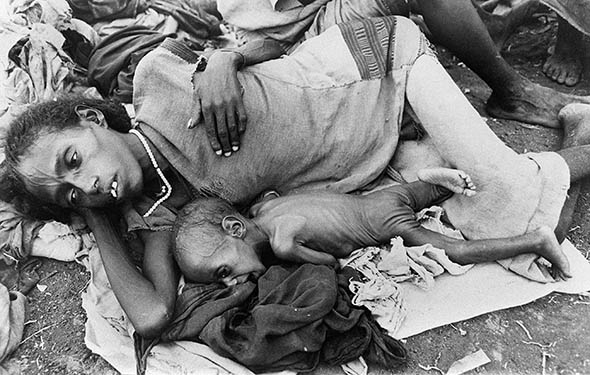
The History of Humanity Is a History of Hunger
Slate Magazine recently published a provocative essay exploring the history of hunger and the threat climate change could pose to future generations. As journalist Mark Joseph Stern points out, many of humanity’s most devastating famines occurred for startlingly banal reasons:
“A rainy season lasted a little too long and killed off a year’s worth of food; a river that was supposed to flood never did; a microbe was introduced and killed off an entire crop. The market quivers, then collapses; the people starve. For millennia, these boom-and-bust cycles of starvation defined human life.”
Stern’s essay is especially timely, given the UN’s recent report on climate change, which found that rising temperatures are already diminishing the world’s food supply by reducing corn and wheat production and threatening rice and soybean harvests as well.
At the United Nations World Food Programme, staff across the globe are working to mitigate the risks of climate change by developing early warning systems and helping communities develop response plans in case of future crisis. This includes Food-For-Work projects that provide food assistance in exchange for work on vital infrastructure, including water reservoirs, irrigation systems and storage warehouses.
“The rather alarming fact is that the vast majority of famines throughout history have been caused by environmental factors we had (or believed we had) no control over. An increasingly pressing question for the 21st century is whether the illusion of powerlessness will begin a new cycle of starvation.”
As the saying goes, those who cannot learn from history are doomed to repeat it.




